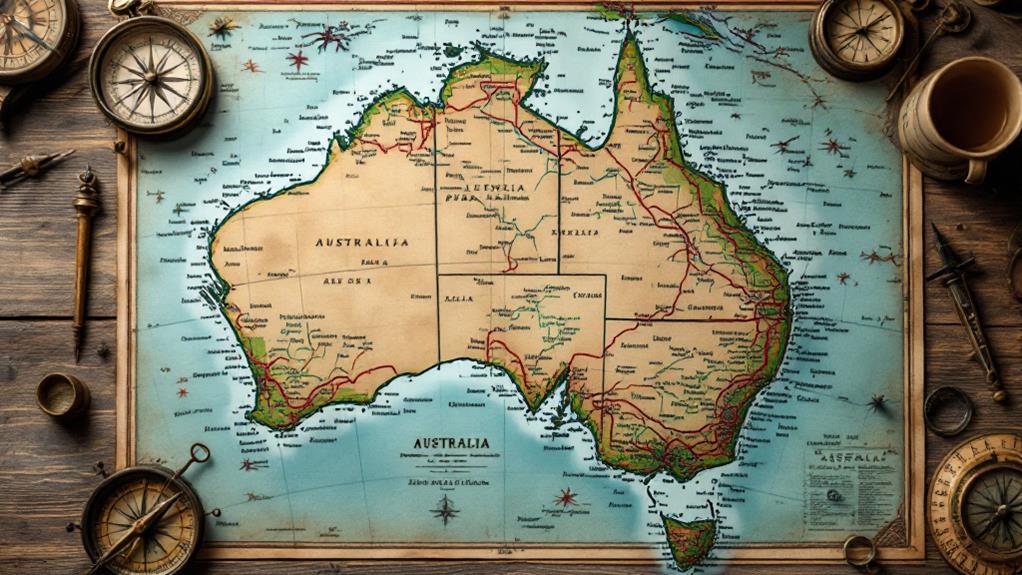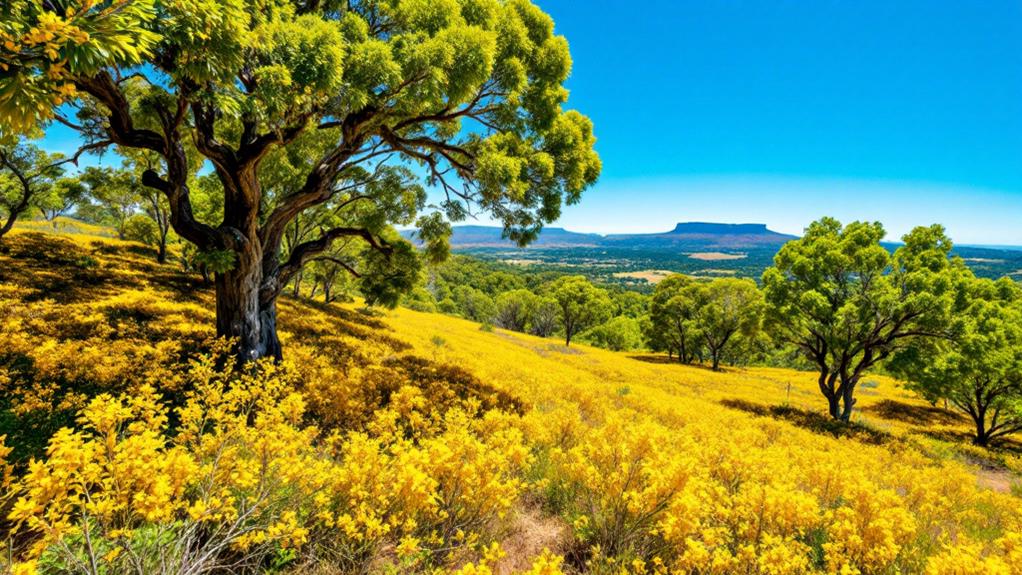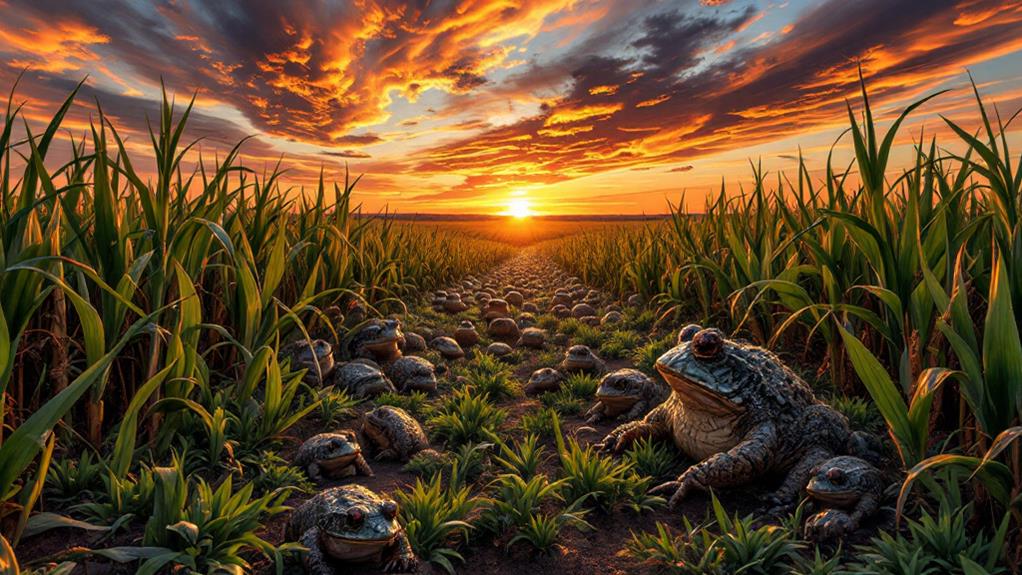What Is Australia Day? A Celebration of National Pride

Australia Day, observed on January 26, marks the arrival of the Initial Fleet at Sydney Cove in 1788 and celebrates Australia's rich history and diverse culture. You participate in events ranging from citizenship ceremonies to the Australian of the Year Awards, promoting unity and national pride. However, it's also a day of reflection for Indigenous peoples who view it as Invasion Day, emphasizing colonization's impacts. Debates continue over the date's suitability, with alternative proposals seeking to reconcile historical grievances and welcome cultural inclusivity. Uncover how this complex and evolving celebration unites and divides Australians.
Historical Origins
When you think about Australia Day, you're diving into a history that began on January 26, 1788, with the arrival of the Original Fleet at Sydney Cove. This crucial moment marked the start of British colonization in Australia, setting the stage for what would become a national day of significance. The Original Fleet's arrival is embedded deeply in the narrative of Australia Day, serving as a reminder of the colonial roots that shaped the nation.
Initially, informal celebrations of this day began as early as 1808, but it wasn't until 1818 that Governor Lachlan Macquarie declared the initial official celebration. This move highlighted the day's growing importance in the colonial consciousness. By 1888, most colonial capitals, except Adelaide, recognized the event as Anniversary Day, paving the way for the concept of a unified national day.
Victoria took the lead by adopting January 26 as Australia Day in 1931. Eventually, in 1946, all Commonwealth and state governments agreed to celebrate on this date. The 1988 bicentennial celebrations drew in over 2.5 million people, underscoring the day's enduring significance in Australian history and its evolution into a key date of national pride.
Evolution of Celebrations
Australia Day's historical roots have laid the groundwork for its evolving celebrations. Initially marked informally with drinking and merriment in 1808, it gained official status in 1818 under Governor Lachlan Macquarie. Over the years, Australia Day celebrations transformed, reflecting the growing significance of Australia Day in the national landscape. By 1888, most colonial capitals, except Adelaide, welcomed Anniversary Day, signaling a shift towards a unified national holiday.
In 1931, Victoria adopted January 26 as Australia Day, and by 1946, the Commonwealth and state governments synchronized their celebrations on this date. This alignment solidified January 26 as a national holiday, a day that echoes with public holiday recognition across all states by 1940. It became a symbol of national identity, marking a crucial moment in Australia's collective consciousness.
The 1988 Bicentennial celebrations further amplified this significance. Over 2.5 million Australians participated in events across major cities, underscoring the day's importance. These celebrations were an affirmation of the evolving nature of Australia Day, reflecting not only historical milestones but also a dynamic and inclusive national identity. As you investigate Australia Day, consider how its celebrations have continually adapted to embody the spirit of the nation.
National Events and Traditions

On January 26, Australians unite with a lively array of national events and traditions that capture the essence of the day. You can engage yourself in the dynamic community festivals, enjoy outdoor concerts, and watch spectacular fireworks displays lighting up the sky. Some of the most notable events include the Australia Day Skyworks in Perth and thrilling boat races in Sydney. These national celebrations attract large crowds and create an atmosphere of joy and pride.
Each year, Australia Day is marked by several key events that foster national unity and community spirit:
- Citizenship Ceremonies: Over 16,000 new citizens are welcomed into the Australian community, symbolizing a fresh start and unity.
- Australian of the Year Awards: Held on Australia Day Eve, this ceremony honors individuals making remarkable contributions to the community.
- Local Council Events: Hundreds of events organized by local councils and community groups bring people together, with participation from over half of all Australians.
- Australia Day Ambassador Program: High-achieving Australians are paired with community events to inspire and engage participants.
These traditions not only celebrate Australia's national identity but also strengthen the bonds within its diverse community. Welcome the festivities and partake in the spirit of togetherness!
Indigenous Perspectives
For many Indigenous Australians, January 26 isn't just a day of celebration; it's a poignant reminder of their ancestors' struggles and the start of British colonization. Many refer to it as Invasion Day, marking the beginning of a dark chapter that led to the dispossession of Aboriginal peoples from their lands and the erosion of their cultures. This day sparks a call for truth telling, where the historical injustices faced by Indigenous communities are acknowledged.
In 1938, the initial Day of Mourning protest highlighted these grievances, serving as a reminder of the long-standing impact of colonization on Indigenous peoples. The activism gained momentum with the establishment of the Aboriginal Tent Embassy in 1972, transforming January 26 into a platform for raising awareness about Indigenous rights. Recognizing the strength and resilience of their cultures, many now refer to the day as Survival Day, celebrating the endurance and ongoing cultural contributions of Aboriginal communities.
Recent polls show that 90% of Australians support the inclusion of Indigenous culture in national celebrations, indicating a growing recognition of the importance of acknowledging and respecting the perspectives of Indigenous peoples on this significant day.
Controversies and Debates

One major controversy surrounding Australia Day is the date itself, January 26, which many argue symbolizes the start of colonization and the ensuing hardships faced by Indigenous Australians. For some, this day is not a celebration of national pride but rather a reminder of dispossession and loss. The term "Invasion Day" is often used by those protesting the date, underlining the adverse impacts of colonization.
Consider these points:
- Historical Protests: The initial notable protest against Australia Day was in 1938, during the 150th anniversary, highlighting the long-standing opposition to the celebration.
- Declining Participation: Polls reveal a shift, with only 29% of people celebrating Australia Day in 2021, down from 40% in 2019, indicating changing perceptions.
- Massive Demonstrations: Events like the 2018 Melbourne rally, which drew tens of thousands, show increasing public support for Indigenous voices.
- Survival Day Recognition: Many prefer to honor "Survival Day" to acknowledge the resilience and cultural endurance of Indigenous Australians.
The debate around Australia Day is complex, reflecting a growing awareness of historical injustices. As you investigate these controversies, consider the diverse perspectives and the deep-seated emotions they evoke.
Changing Public Sentiment
As public sentiment around Australia Day evolves, a noticeable shift has emerged in how Australians perceive the holiday. Recent polls reveal a decline in support, dropping from 40% in 2019 to 29% in 2021, especially among younger Australians who advocate for a date change. More Australians now find January 26 problematic, as it marks the beginning of a painful history for Indigenous peoples. This has led to widespread participation in Invasion Day protests, drawing tens of thousands in cities like Melbourne.
Major brands like Woolworths have responded to changing public sentiment by discontinuing Australia Day merchandise, reflecting declining consumer interest. This shift also highlights an increasing demand for alternative celebrations that better align with a more inclusive national identity. Awareness of Indigenous culture and history is growing, with 90% of Australians supporting the acknowledgment of Indigenous contributions in celebrations.
Local councils and community groups are adapting by offering flexibility around January 26 observance, showcasing a desire for inclusivity. This evolving public sentiment indicates a broader societal change, with Australians reconsidering how national pride can be celebrated while respecting and acknowledging the rich Indigenous history intertwined with the nation's identity.
Alternative Date Proposals
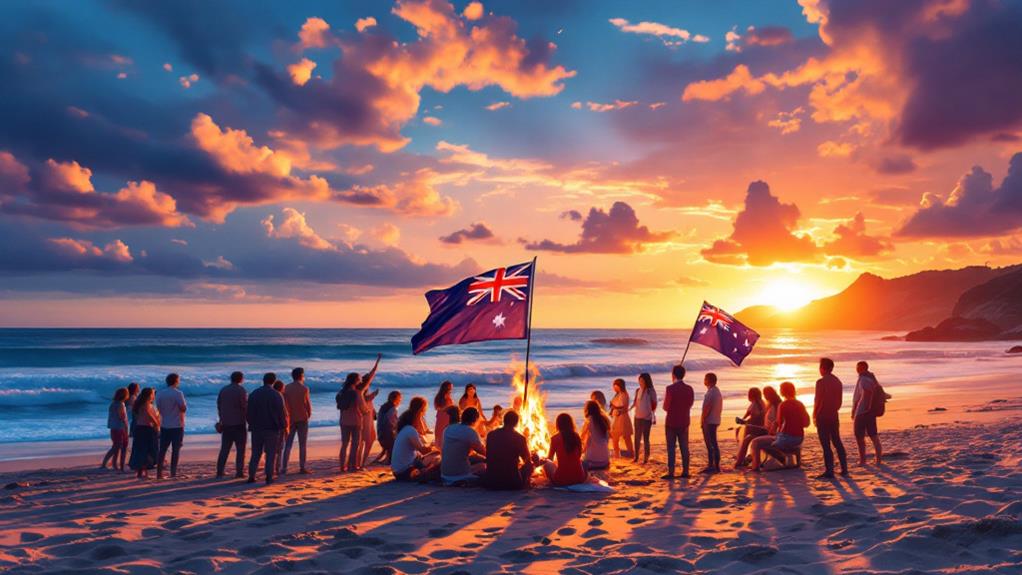
The calendar offers several meaningful dates as alternatives for Australia Day, each carrying its own historical significance. These alternative date proposals aim to foster reconciliation and respect for Indigenous cultures. Let's investigate some notable options:
- January 1: This date marks the Federation of Australia in 1901, symbolizing the nation's unification and a chance to celebrate a fresh beginning.
- May 27: Commemorating the 1967 referendum, this day recognizes a significant moment when Australians voted overwhelmingly to include Indigenous Australians in the census and allow the federal government to create laws for them.
- August 4: Known as the anniversary of the initial Aboriginal Day of Mourning in 1938, this date highlights Indigenous rights and experiences, reminding us of the ongoing expedition towards equality.
- March 21: Celebrated as Harmony Day, it welcomes cultural diversity and inclusivity, reflecting Australia's multicultural identity.
These proposals align with global practices of acknowledging historical injustices and fostering unity among diverse communities. Choosing a date that honors the significance of Indigenous cultures is essential for promoting reconciliation. By considering these alternative dates, you can participate in a national conversation that seeks to reshape the narrative and guarantee every Australian feels represented and respected.
Community and Cultural Impact
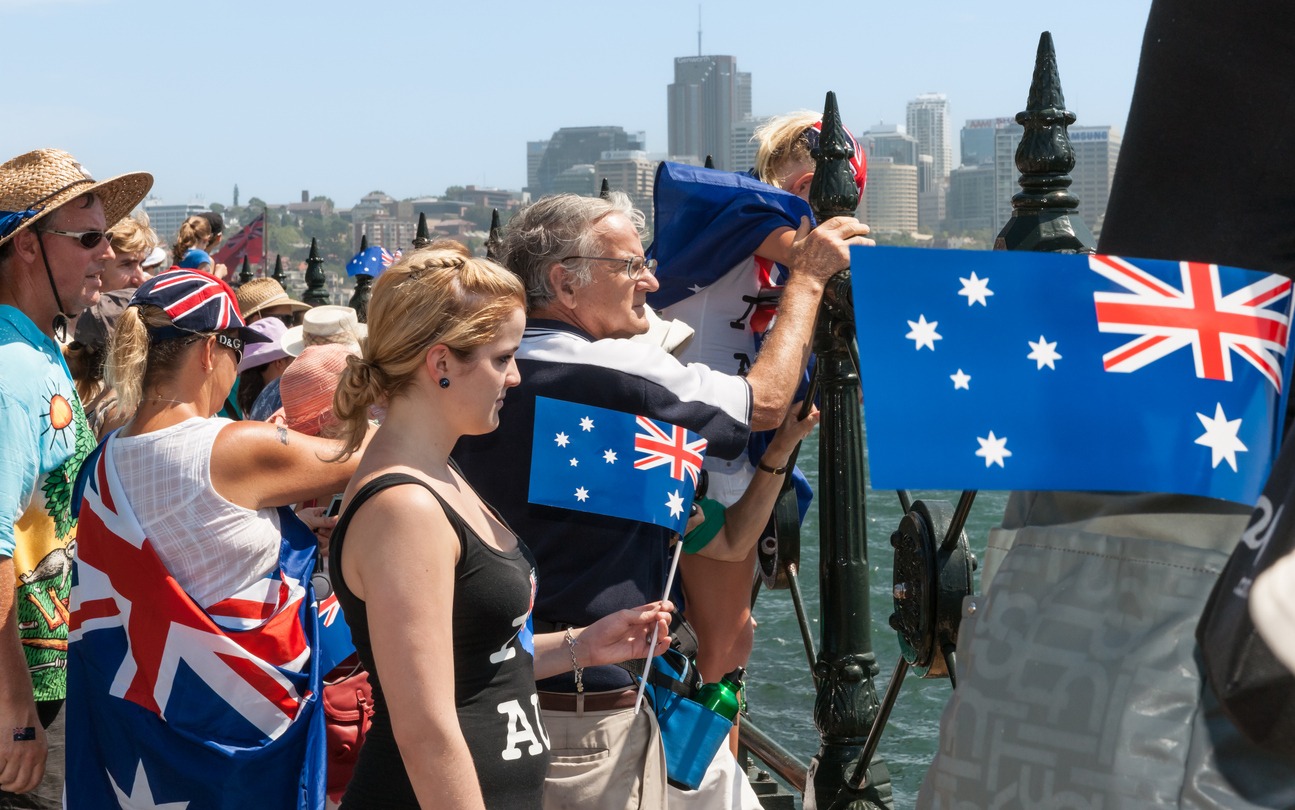
Australia Day stands as a cultural touchstone, fostering a lively exchange of traditions and ideas among varied communities. It's a day that celebrates community connection and cultural exchange, bringing Australians together to reflect on their shared national identity. By welcoming over 16,000 new citizens annually, Australia Day showcases the multicultural values that are fundamental to contemporary Australian society. This celebration isn't just about acknowledging diversity; it's about embracing it through events that encourage participation and dialogue among different groups.
On Australia Day, more than half of all Australians engage in numerous celebrations, promoting inclusivity and unity. These events often highlight the importance of Indigenous cultures, acknowledging their significant role in shaping the nation. Through these interactions, Australians foster understanding and respect, reinforcing the values that bind them together.
Local governments play a vital role in these celebrations by organizing events that spotlight individual and community achievements. The Australia Day Achievement Medallion is awarded to individuals who have made notable contributions to society, further promoting a sense of pride and accomplishment. This recognition not only honors their efforts but also inspires others to contribute to the community, strengthening the fabric of Australian life.

